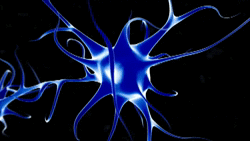
One of the main factors increasing the prevalence of MDRTB is noncompliance by patients who do not complete their normal 6-month treatment regimen, leading to the emergence of drug-resistant M. A recent study of MDRTB in South Africa reports that of 225 patients diagnosed with MDRTB, only 50 percent were cured or completed treatment. Treatment default rates were highest among alcohol users (Kendall et al. 2013). Other countries also report similar TB treatment defaults in individuals with AUD, resulting in poorer treatment outcomes and increased mortality rates (Bumburidi et al. 2006; Jakubowiak et al. 2007). Along with noncompliance, people with AUD have compromised lymphocytes, which are among the main immune components combating TB infections. The three main types of lymphocytes are natural killer (NK) cells, T cells, and B cells.
How do I take care of myself?
Alcohol abuse is therefore a risk factor for active TB (Borgdorff et al. 1998; Buskin et al. 1994; Kline et al. 1995; Narasimhan et al. 2013). Typically, a diagnosis of alcohol use disorder doesn’t require any other type of diagnostic test. There’s a chance your doctor may order blood work to check your liver function if you show signs or symptoms of liver disease.
Long-term health risks of chronic alcohol use
- Alcohol use can begin to take a toll on anyone’s physical and mental well-being over time.
- For those seeking help, centres like Madison Recovery Center offer comprehensive treatment programmes that address both the physical and psychological facets of alcohol dependence.
- Stopping suddenly will likely cause symptoms, and they can be serious.
- Studies show most people can reduce how much they drink or stop drinking entirely.
These diseases disrupt liver function, causing serious damage to the body over time. Notably, women have a higher risk of developing alcohol-induced liver injuries than men. It can potentially be fatal depending on your drinking habits, how long you’ve been drinking, and how frequently you drink.

Frequently Asked Questions Regarding the Mental Effects of Alcohol Use

Some studies have found that even light or moderate drinking can lead to some deterioration of the hippocampus. From the first sip, alcohol impacts the body—even if you don’t realize it. Any amount of alcohol can diminish your judgment and functioning, and even low or moderate alcohol use can have harmful effects on different organs. If you https://ecosoberhouse.com/article/you-are-not-powerless-over-alcohol-and-heres-why/ drink more alcohol than that, consider cutting back or quitting. Blood alcohol concentration (BAC) is a measurement of the percentage of alcohol in the bloodstream at a given time.6 For instance, if an individual has a BAC of 0.10%, it means their blood contains one part alcohol for every 1,000 parts blood.
How To Diagnose Alcohol Dependence
When the pancreas becomes irritated and inflamed, you can develop pancreatitis. When you drink too much alcohol, it can throw off the balance of good and bad bacteria in your gut. Your gut microbiome is a hotbed of bacteria that help keep your digestive system happy and healthy. The trillions of microbes in your colon and large and small intestines are critical to proper digestion. They also help fend off inflammation and support healthy metabolism.
- There are different types of Igs (e.g., IgA, IgM, and IgG) that all have specific functions during the immune response.
- Men are more likely to develop colon cancer than women, but both are equally at risk if they misuse alcohol throughout life.
Deaths from excessive alcohol use

Alcohol use disorder develops when you drink so much that chemical changes in the brain occur. These changes increase the pleasurable feelings you get when you drink alcohol. Alcoholism, referred to as alcohol use disorder, occurs when someone drinks so much that their body eventually becomes dependent on or addicted to alcohol. This complex web of consequences illustrates physiological dependence on alcohol why mental health is a central focus in alcohol recovery programmes. The less alcohol you drink, the lower your risk for these health effects, including several types of cancer. Although medical detox from alcohol dependency will help you navigate the withdrawal process safely, ongoing treatment and support may be necessary to maintain sobriety after detox.
Conditions
It’s important to note that any amount of alcohol in your system can interfere with your ability to think and function without impairment. However, when researchers evaluate these potential factors, the risks outweigh any benefits. While you may experience euphoria or relaxation at first, in the long run, alcohol affects neurotransmitters, which can lead to changes in your thoughts, moods, and behavior.
If you are physically dependent on alcohol, you may feel like you are unable to function without it and experience obsessive thoughts about drinking. While these factors alone do not mean your condition classifies as alcohol addiction, it can be a contributing factor if proper treatment is not sought. Genetic, psychological, social and environmental factors can impact how drinking alcohol affects your body and behavior. Theories suggest that for certain people drinking has a different and stronger impact that can lead to alcohol use disorder. Understanding how alcohol affects the mind, body, and overall health can help you make the most informed decisions about your consumption habits.

Therefore, it’s advisable to explore inpatient and residential treatment facilities that can provide support and tools to help maintain your sobriety. Alcohol or drug use at this stage is typically causing significant problems in the person’s life, yet they continue to use despite the known harmful consequences. The person may experience feelings of powerlessness as attempts to quit or cut back on one’s own repeatedly fail. Tolerance is an early indicator of both physical and psychological dependence, as a person must use more to reach the same level of intoxication. The increasing tolerance can lead to more frequent and larger doses, often without the person realizing the extent of this gradual escalation. At this second stage, a person is using substances more frequently.
Addiction Is a Disease; Tolerance and Dependence Aren’t
- In one study, however, adolescent rats exposed to intermittent alcohol never developed this increased sensitivity.
- G-CSF levels normally increase in situations where more neutrophils are needed.
- In both males and females, puberty is a period of activation of the hypothalamic-pituitary-gonadal (HPG) axis.
- Alcohol use disorder develops when you drink so much that chemical changes in the brain occur.
- CGMP, in turn, activates cGMP-dependent protein kinase (PKG), followed by activation of the cyclic adenosine monophosphate (cAMP)-dependent protein kinase A (PKA).
They’ll recommend treatments and resources to help you recover from alcohol use disorder. Studies show most people with this condition recover, meaning they reduce how much they drink, or stop drinking altogether. They may start drinking to cope with stressful events like losing a job, going through a divorce, or dealing with a death in their family or a close friend.











